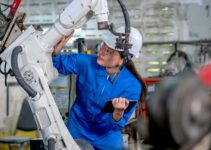The intersection of large language models, automation, and exponential technologies has profound implications for the future of humanity, especially concerning the eradication of poverty and reimagining work-life dynamics. These transformative technologies have the potential to redefine socioeconomic structures, enabling equitable wealth distribution and a heightened quality of life for all. Imagine a world where everyone has access to tailored education, employment is a choice rather than a necessity, and leisure becomes a significant component of human life. Such visions, once thought utopian, are within our grasp, thanks to the advancements in these domains.
- Large Language Models: By offering personalized education tools and resources, these AI-driven models can democratize learning. Tailored curriculums, based on individual needs and pacing, can ensure that every person, regardless of background, has access to quality education. This not only bridges knowledge gaps but also provides opportunities for upward mobility.
- Automation: The promise of automation is twofold: increased production and decreased necessity for manual labor. With the ability to handle repetitive tasks efficiently, industries can produce more at a fraction of the cost. This can lead to reduced prices for essentials, making them accessible to a broader population. Additionally, the reduced need for manual labor can shift the focus to more creative, fulfilling jobs and lead to a shorter workweek.
- Exponential Technologies: As these technologies continue their rapid development curve, they have the potential to solve global challenges. Think of harnessing clean energy at scale, producing food through vertical farming, or providing healthcare via telemedicine to remote areas. The affordability and accessibility of such solutions can uplift millions from poverty.
In envisioning this future, it’s important to acknowledge the challenges as well. The transition phase might witness job displacements and require robust social safety nets. Education and re-skilling become paramount. However, with thoughtful implementation and policy-making, the alignment of these technologies can indeed craft a world where poverty is history, work is not labor-intensive, and life’s pleasures are abundant and widespread.



